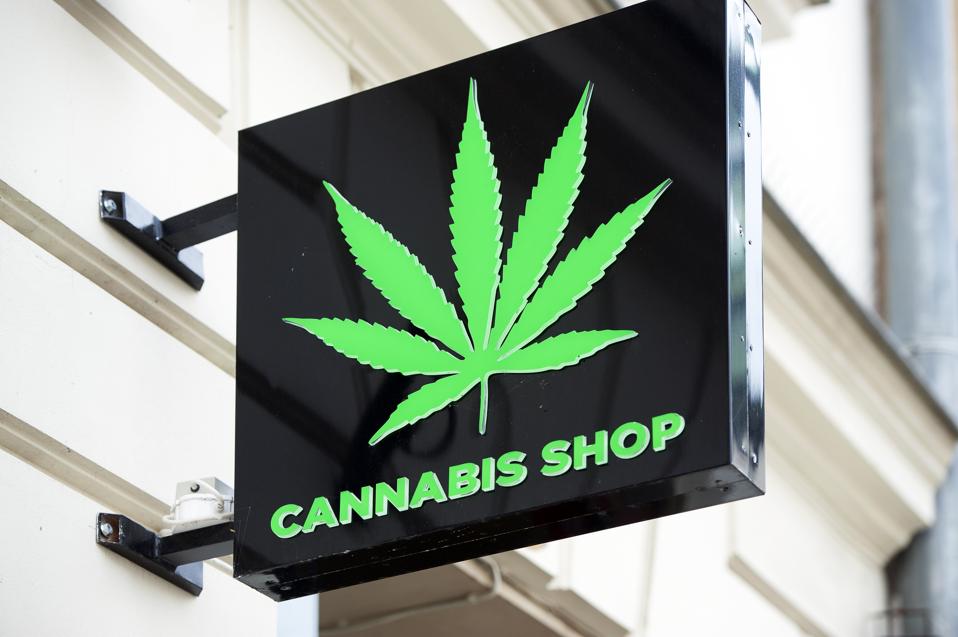An Oklahoma cannabis policy reform advocacy group this week began collecting signatures in support of a constitutional amendment to legalize recreational cannabis in the Sooner State. Oklahomans for Responsible Cannabis Action (ORCA) began circulating petitions on Wednesday, with plans to qualify the proposed constitutional amendment for the ballot for the 2026 general election.
To qualify for the ballot, ORCA must submit valid signatures from at least 172,993 registered Oklahoma voters. If passed, the measure (State Question 837) would amend the Oklahoma Constitution to legalize the possession and use of marijuana for all adults aged 21 and older.
“It does open up access to more people who might not have the money to get their medical card,” Breanna McClaine, manager of Rainforest Cannabis dispensary in Ardmore, Oklahoma, told KTEN television news. “Whenever used in an appropriate manner, that it is a very good drug to use to help with mental health and even like your physical health.”
Activists Share Strategy For Collecting Signatures
ORCA filed the marijuana legalization initiative with state election officials in April. Jed Green, founder of OCRA, said the legalization campaign has developed a plan to reach the number of signatures needed to qualify the marijuana legalization proposal for the ballot.
“I feel pretty good. The strategy is pretty straightforward. At this point, we’ve managed to secure somewhere between 250 and 300 retail locations across the state—a lot of dispensaries, but also a lot of other allied locations” to keep initiative petitions on-site for voters to sign, Green told Marijuana Moment on Monday, according to a report from the online cannabis news outlet. “That number does continue to grow daily.”
“What we are focused on right now is making sure as many of those retail locations have all got signature packets here this week—and so all the printing has gone on, all of that assemblies are going and we’re starting to pump those into the distribution network,” Green added.
With the signature-gathering infrastructure set in retail shops, ORCA plans to focus next on rural areas so they can be monitored as a benchmark for progress. The campaign will then concentrate on large cities such as Tulsa and Oklahoma City.
“Then on top of that, it’s a great time of the year for canvassing at public events. We’ve got home football games, fairs, a ton of public events going on and concerts in the fall,” Green said. “Step one is to make sure that we’ve got good retail access, and then, after that, the more traditional signature gathering.”
Legalizing Recreational Cannabis Failed In 2023
The new effort to legalize recreational cannabis in Oklahoma comes just over two years after voters rejected a similar proposal in March 2023. More than 61% of the electorate voted against Question 820 that year, although a proposal to legalize medical cannabis was passed by 57% of voters in 2018.
Green said that one of the primary differences between this year’s recreational cannabis legalization initiative and State Question 820 is tighter licensing rules for cannabis businesses. Opponents of the state’s legalization of medical cannabis have said that lax licensing requirements led to a proliferation of weed businesses across the state.
Can Recreational Weed Legalization Pass In Oklahoma?
Sara Gullickson, CEO of consulting firm The Cannabis Business Advisors, says that she believes State Question 837 has a good chance of succeeding at the polls.
“The energy behind Oklahoma’s latest adult-use cannabis initiative is exactly what this industry needs,” Gullickson writes in an email. “With hundreds of medical dispensaries stepping up to support signature gathering, it’s clear the local cannabis community is united and motivated. This grassroots momentum gives me confidence that this proposal will pass.”
Pat McFerron, who led the campaign against the 2023 recreational marijuana legalization bid, noted that it failed in all of Oklahoma’s 77 counties.
“I think most Oklahomans believe the current system we have is de facto recreational,” McFerron told Oklahoma Voice. “The barrier is so miniscule, so I see no desire among the public to make it even easier to buy cannabis.”

